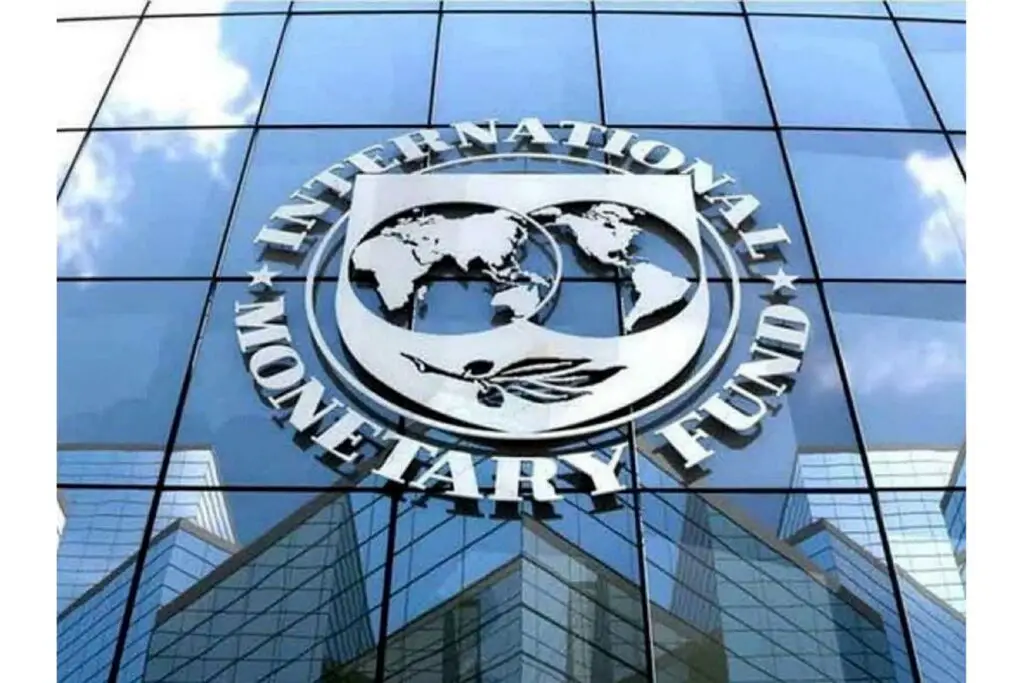- The IMF says latest tranche is meant to finance “general national development efforts.”
- When the entire Extended Credit Facility ECF is disbursed, Tanzania will be eligible to receive in excess of $304.7 million.
- Tanzania faulted for not publishing audit report of its Covid-19 pandemic-related spending.
The International Monetary Fund (IMF) has approved $153 million in credit financing for Tanzania. The loan, however, comes with a tough call for enhanced monitoring and transparency in public spending.
This financing is only the first part of the loan that was issued following the completion of the first part of the country’s Extended Credit Facility (ECF) review. When the full ECF is completed, Tanzania will be eligible to receive in excess of 4. (https://pragermetis.com/) 7 million.
What is the loan for? According to the public statement released after the deal was signed earlier this month, the money is meant to finance “general national development efforts.”
“The arrangement aims to support economic recovery, preserve macro-financial stability, and promote sustainable and inclusive growth,” reads the IMF press release.
The IMF says the loan will help strengthen Tanzania’s fiscal space and “…allow for much-needed social spending and high-yield public investment, enhancing the monetary policy framework and improving financial sector supervision, and advancing structural reforms.”
Tanzania qualified for the loan based on past performance
The expenditure list is long and it all has to do with the general development of the nation. The lender’s statement, however, fell short of specifying any monitoring and evaluation of the said expenditure. It also did not specify the repayment plan or attached conditions. Instead, it reassured stakeholders that Tanzania is qualified for the loan based on past performances.
“Tanzania’s economic reform program is progressing. All quantitative performance criteria and indicative targets for December 2022 were met,” IMF said.
Read also: 7 Things Kenya should do to address high levels of debt
The Bretton Woods institution commended Tanzania for completing and submitting its structural benchmarks and amendments to the Banking and Financial Institutions Act to Parliament which it said were completed ahead of time.
However, Tanzania did not complete in time the structural benchmark nor the publishing audit report of its pandemic-related spending.
That be as it may, the IMF recognizes that “spillovers from the war in Ukraine and domestic factors have weighed on Tanzania’s economic recovery from the pandemic.”
“After a modest recovery to 4.9 percent in 2021, real GDP growth is estimated to have slowed to 4.7 percent in 2022, reflecting the impact of global economic conditions and shortfalls in rainfall,” reads the report in part.
IMF projects Tanzania growth
However, the IMF projects that this year, Tanzania’s performance will improve. “In 2023, growth is expected to recover to 5.2 percent as global commodity price shocks subside and the business environment improves.”
The IMF also lauded Tanzania for the measures it has taken in response to the war in Ukraine. Notably, policymakers in Tanzania are instituting a combination of temporary fiscal support policies while also tightening the monetary policy.
Then there is the issue of Tanzania’s response to its inflation problem. The IMF notes that, even though Tanzania’s inflation is relatively low, the country has issued temporary fuel and fertilizer price subsidies to curb the overall price inflation and it has also toughened liquidity to control price hikes.
With all the commendations, the IMF still cautions that; “While inflation remains below target, the Bank of Tanzania should stand ready to tighten monetary policy as needed while allowing more exchange rate flexibility against external shocks.”
Moving on, the IMF commends Tanzania’s draft budget for FY2023/24 describing it as “appropriately based on conservative revenue and expenditure projections and aims to achieve fiscal consolidation while safeguarding priority social spending.”
Improve efficiency of expenditures
“The Tanzanian authorities remain committed to their economic reform program despite a challenging global economic environment,” the IMF contends.
“Efforts to enhance domestic revenue mobilization and improve the efficiency of expenditures will help create the fiscal space needed to finance priority investment and social spending while safeguarding debt sustainability,” it notes.
While the IMF report did not specify monitoring and/or evaluation of the loan amounts, it insists on the importance of strict financial management and monitoring of public expenditure.
“Strengthening public financial management and oversight of state-owned enterprises is critical to contain fiscal risks,” the IMF told Tanzanian authorities.
Likewise, IMF also cautioned Tanzania over its debt saying the country’s “risk of debt distress remains moderate,” but it is important to continue prioritizing concessional financing and ensure that fiscal risks from contingent liabilities are well-contained.
Then there is the issue of structural reforms. The IMF is advising Tanzania that business reforms should focus on streamlining bureaucratic procedures. The envisaged changes should also help simplifying the business regulatory regime, and enhancing regulatory transparency.
The IMF has also called for enhanced domestic revenue mobilization. This may translate to increased taxes and fees for Tanzanians. The lender, however, also urged for improved efficiency in revenue expenditure.
Similarly, Tanzanians should buckle up for tougher times ahead. This comes after the IMF encouraged the Bank of Tanzania (BoT) to tighten its monetary policy. The planned rise in interest rates will be critical in tackling inflation.
The question of corruption in the public sector also featured like a sore thump in IMF list of concerns. In response, the IMF recommended a risk-based supervisory approach to plug governance deficiencies. An increasing number of State-owned enterprises in Tanzania are chocking under the vice-like grip of graft.
Tanzania’s IMF economic outlook
While Tanzania’s economic recovery from the pandemic is described as favorable, downside risks abound. A majority of the uncertainties facing the country stretch from ongoing global factors.
In this context, the IMF urged increased commitment to economic reforms, which it said will be critical to strengthening Tanzania’s economic recovery. This would also help in preserving its macroeconomic stability, and supporting its planned sustainable and inclusive growth.
The IMF remains confident in Tanzania’s economic recovery. It, however, insists on continued engagement and capacity development support from the Fund and partners.
The IMF Directors commend Tanzania’s submitted fiscal consolidation plan for the financial year FY2023/24. They nonetheless urged for the creation of additional fiscal space and prioritizing concessional financing to priority investment areas. In particular, they highlighted public spending in health and education areas.
Tanzania is encouraged to prioritize public investment and strengthen its public finance management and transparency in public spending. Importantly, the IMF has called on Tanzania to openly lay out its revenue management of future gas revenues as well as revenues from other natural resources.
As for business structural reforms, the IMF urged Tanzania to promote inclusive, resilient, and sustainable growth. This will be by among others a strategy streamlining bureaucratic procedures and simplifying its business regulatory regime. Once these reforms are in place, the multilateral lender added, it will manifest hugely in private sector growth.











